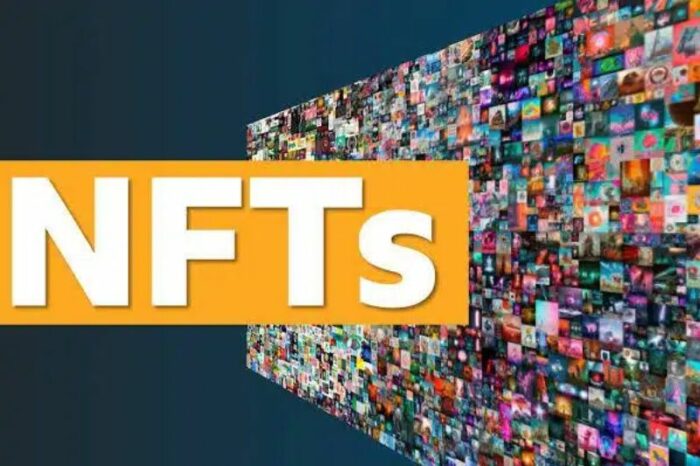In the world of blockchain and digital assets, Non-Fungible Tokens (NFTs) have emerged as a revolutionary technology with the potential to reshape various industries. NFTs have gained widespread attention for their unique properties, allowing for the tokenization of digital and physical assets.
With their recent surge in popularity, many wonder what the future holds for NFTs and how they will continue to impact our lives. This article explores the potential trajectory of NFTs and their role in shaping the future of digital ownership, creativity, and investment. In the age of digital threats, guarding Bitcoin against cyber assaults has become a paramount concern for cryptocurrency holders and the industry as a whole.
The Rise of NFTs: From Obscurity to Mainstream
Over the past few years, NFTs have transitioned from being a niche concept to becoming a mainstream phenomenon. Early adopters recognized the potential of NFTs as a means to prove ownership and authenticity of digital assets, such as artworks, music, videos, virtual real estate, and more.
With this rise in interest, numerous online platforms have emerged, offering NFT marketplaces where creators and collectors can buy, sell, and trade NFTs.
Tokenizing the Digital World: A New Era of Ownership
The future of NFTs lies in their ability to tokenize the digital world, granting ownership of unique digital assets that were previously non-transferable and non-fungible. NFTs have opened up opportunities for creators and artists to monetize their digital works directly, without the need for intermediaries.
As NFT technology continues to evolve, we can expect to see a broader range of assets tokenized, from virtual reality experiences and video game items to virtual fashion and even AI-generated content. This will empower creators to reach new audiences and generate revenue from their digital creations.
NFTs and Decentralized Finance (DeFi): A Synergistic Relationship
The convergence of NFTs with Decentralized Finance (DeFi) is an exciting development that holds tremendous potential for the future. DeFi platforms have revolutionized traditional finance by eliminating intermediaries and offering a range of financial services based on blockchain technology.
By integrating NFTs into the DeFi ecosystem, users can now use their digital assets as collateral for loans, participate in liquidity pools, and engage in yield farming. This opens up a world of new possibilities for both NFT holders and DeFi enthusiasts.
NFTs in Gaming: Bridging the Virtual and Real Worlds
Gaming has been at the forefront of NFT adoption, with blockchain-based games leveraging NFTs to provide players with true ownership of in-game assets. This fusion of gaming and blockchain technology has created a burgeoning virtual economy where players can buy, sell, and trade their unique virtual assets. As gaming becomes more immersive and interactive, NFTs will play a crucial role in blurring the lines between the virtual and real worlds.
NFTs and Intellectual Property Rights: A Legal Frontier
As the NFT space grows, so do the legal implications surrounding digital ownership and intellectual property rights. The immutable nature of blockchain raises questions about copyright infringement, plagiarism, and licensing of NFTs.
NFT creators and platforms will need to navigate these legal challenges and establish frameworks to protect both creators and collectors. This legal frontier will require collaboration between tech companies, legal experts, and regulatory bodies to ensure a fair and secure environment for all stakeholders.
Environmental Concerns: The Carbon Footprint of NFTs
Amidst the excitement surrounding NFTs, there have been valid concerns about their impact on the environment. The process of minting NFTs often involves energy-intensive computations, leading to a significant carbon footprint.
However, the blockchain community is actively working on solutions to reduce the environmental impact of NFTs. Several projects are exploring eco-friendly alternatives to traditional proof-of-work blockchains, such as proof-of-stake and other energy-efficient consensus mechanisms.
The Democratization of Creativity and Investment
One of the most compelling aspects of NFTs is their potential to democratize creativity and investment. Through NFTs, artists and creators can directly connect with their audiences and bypass traditional gatekeepers.
Similarly, everyday investors can access unique investment opportunities by buying into NFTs that represent real-world assets like real estate or rare collectibles. This democratization of creative expression and investment will likely continue to attract a diverse range of individuals to the world of NFTs.
Conclusion
In conclusion, the future of NFTs holds promise and potential for transforming various industries. From art and gaming to finance and ownership, NFTs are shaping a new digital landscape that offers exciting opportunities and challenges. As technology continues to advance, NFTs will evolve further, becoming more accessible, sustainable, and integrated into our daily lives.


